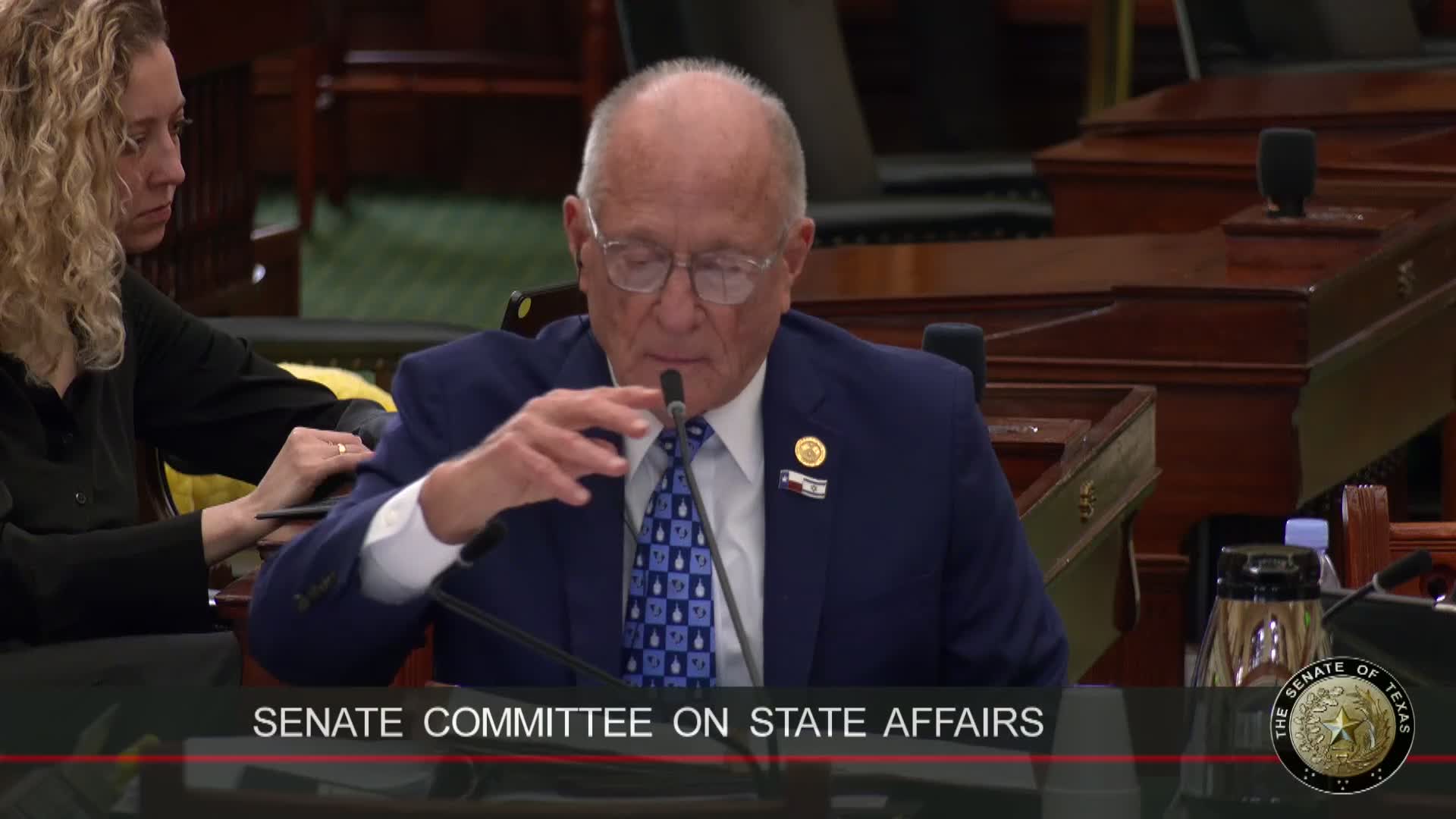Article not found
This article is no longer available. But don't worry—we've gathered other articles that discuss the same topic.
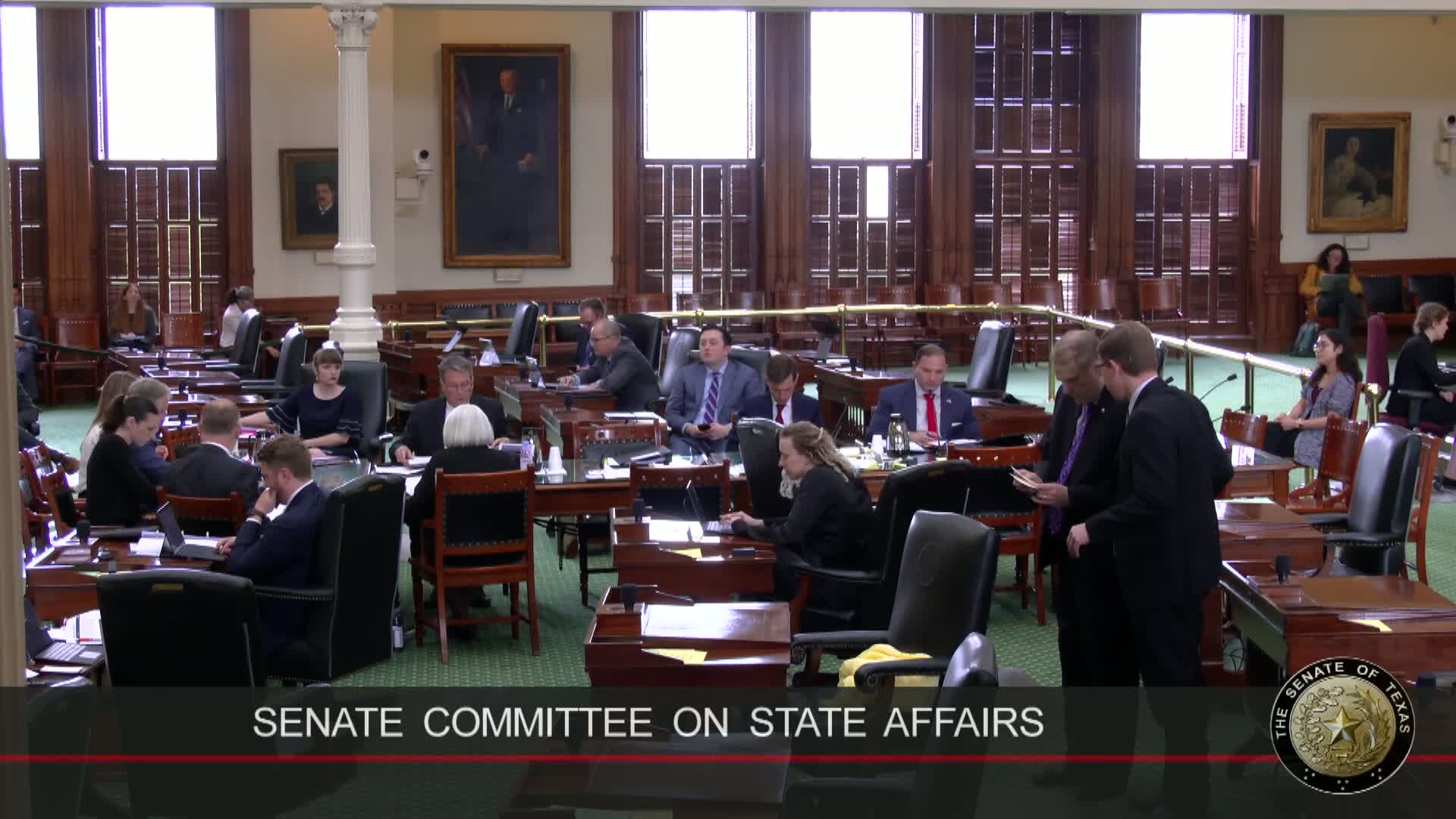
Senate panel hears extensive testimony on expanding Texas Compassionate-Use Program; bill left pending
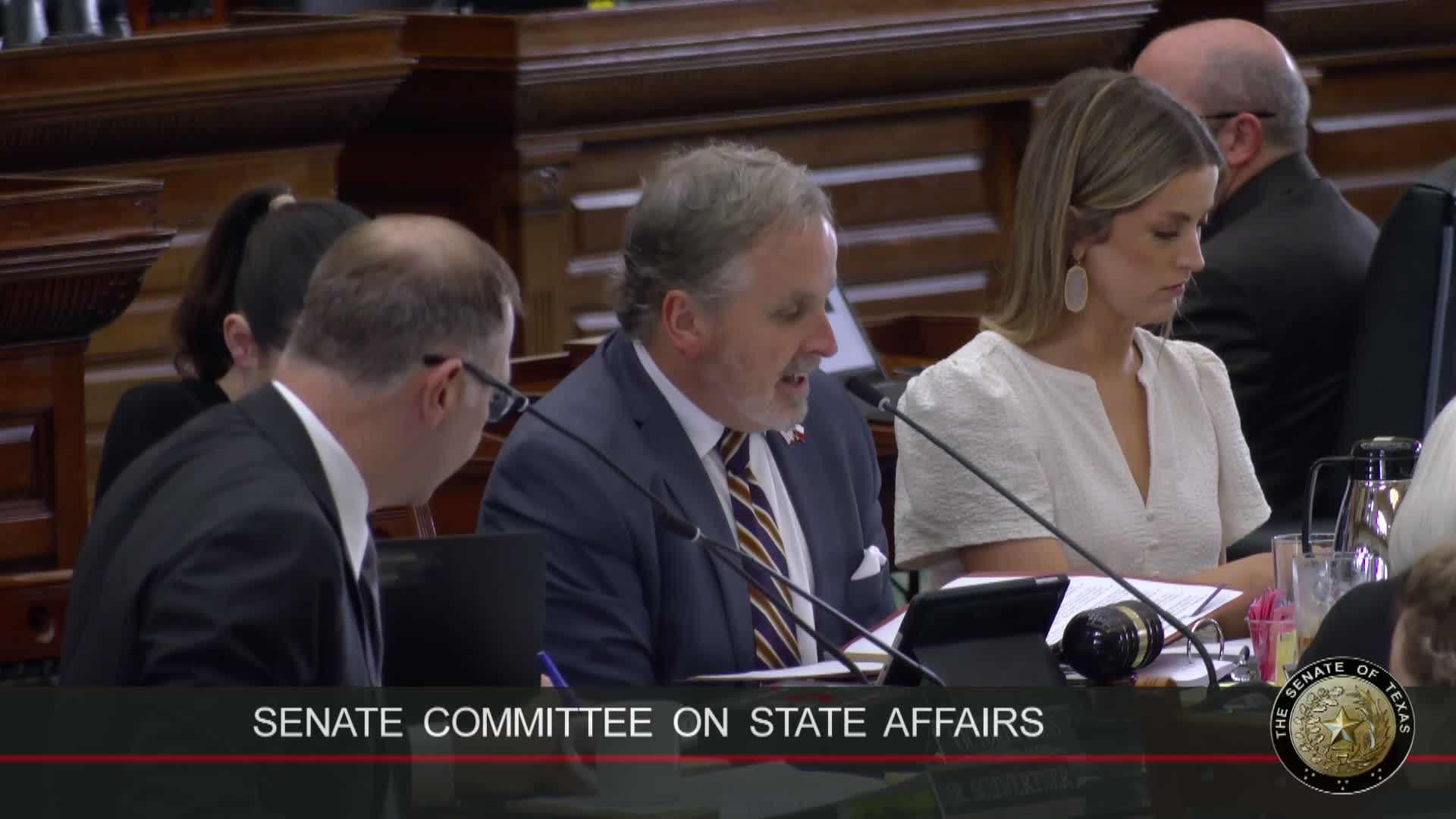
Senate committee hears bill to let providers meet timely-billing rule by sending bills to attorneys in personal-injury cases
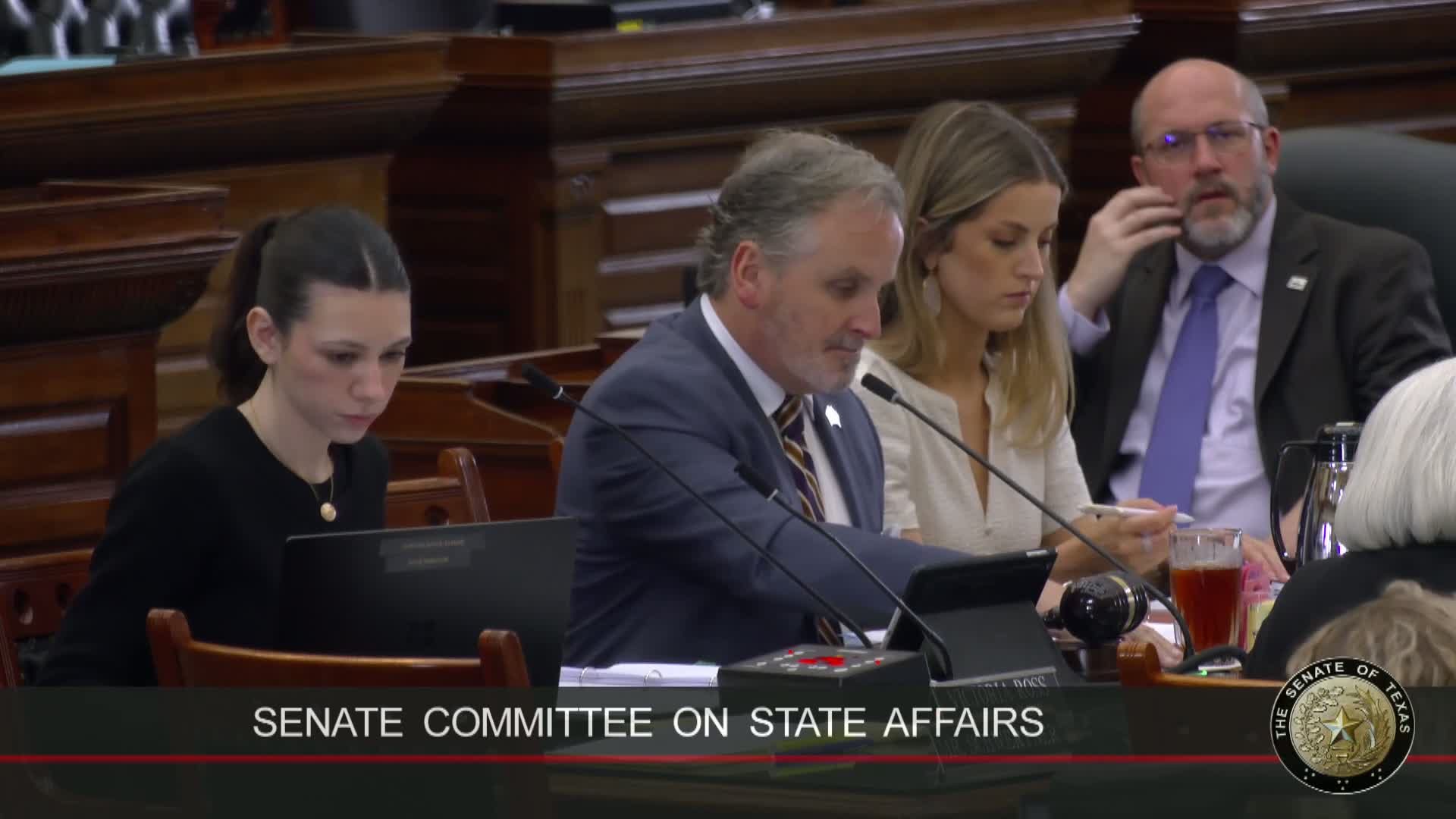
Senate committee hears proposal to increase penalties for repeated denials of court-ordered child possession
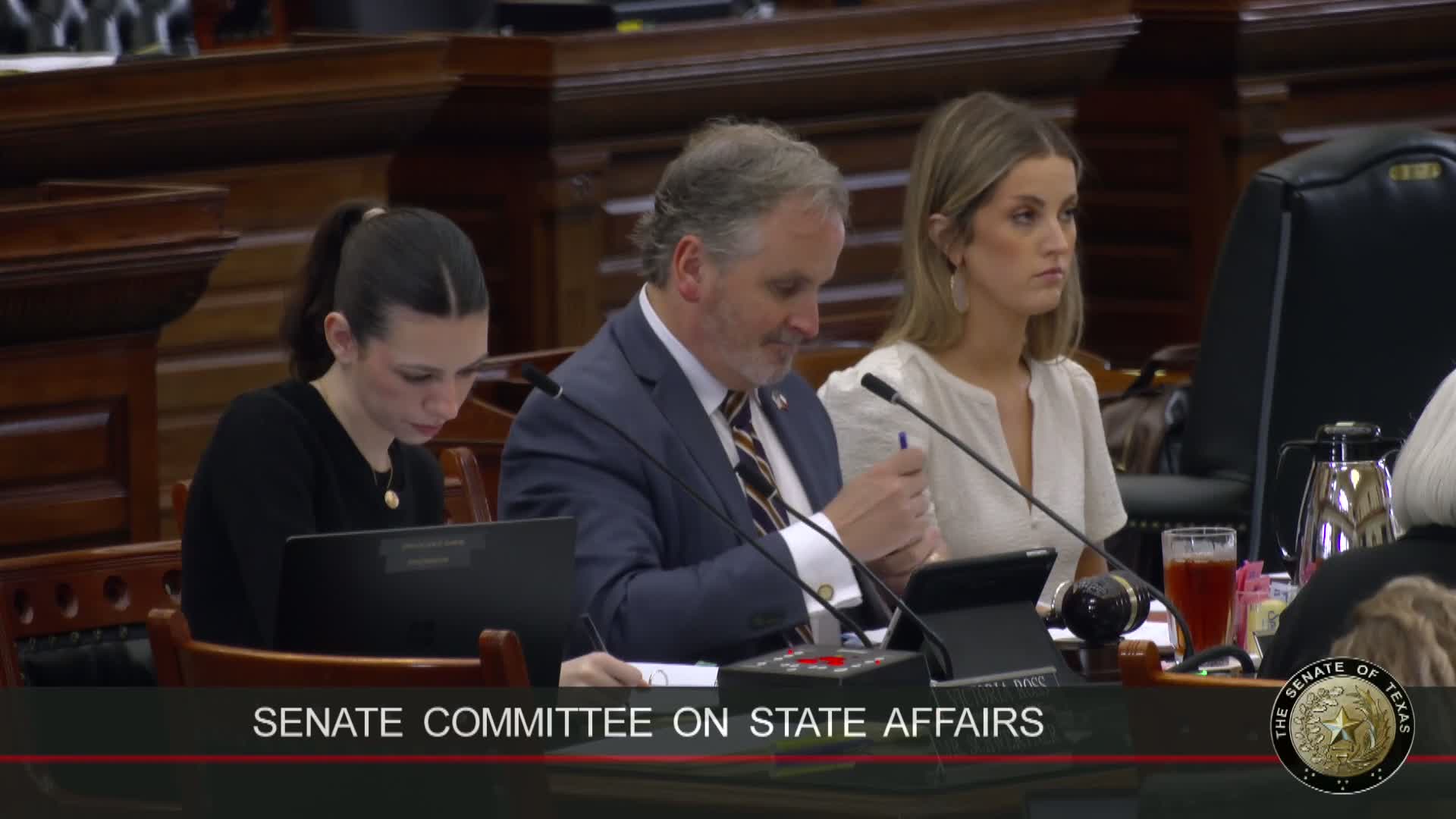
Senate panel considers raising allowable reserve for charitable bingo organizations
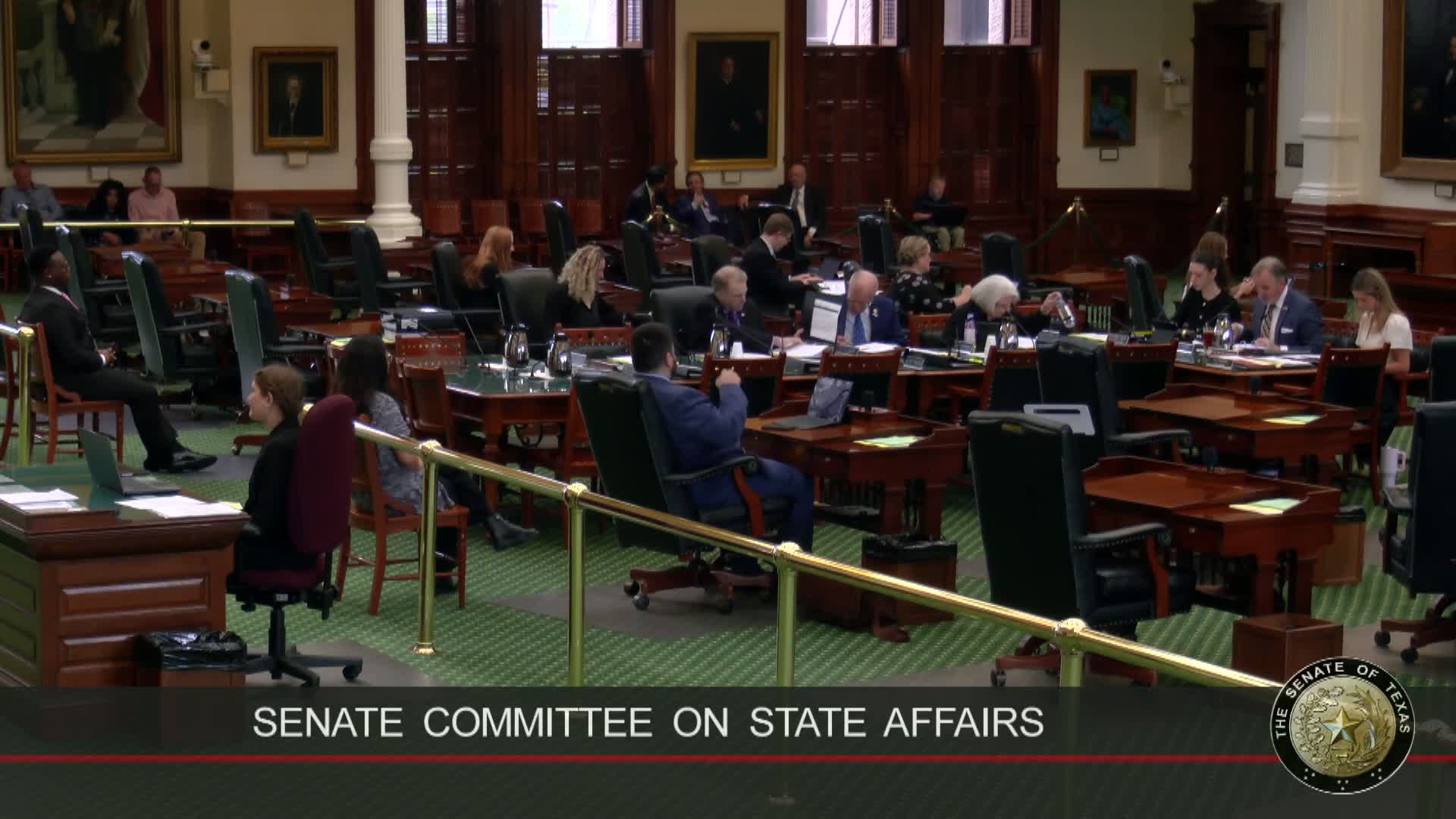
Senate committee hears bill to align credit-card-data fraud statute with venue, intent rules
